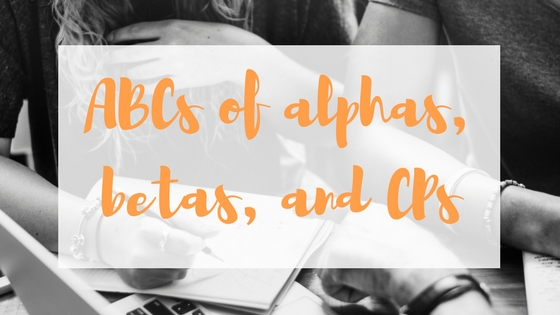Today, I want to discuss the stage of writing that I’m currently at, which is sharing my writing with readers!
I recently finished my first novel, The Fair Queen, and sent it to a few trusted friends and family to read. Some of them are actually proofreading it – I keep getting messages with grammatical errors and misspellings! I’m really grateful to them all, and so far everyone’s really enjoyed it, which is amazing to hear.
As scary as it may be, letting people read our work is the only way to progress – whether that’s improving our writing skills by getting feedback from readers and editors, or seeking to publish by sending our stories to agents and publishers. It’s an integral and crucial part of being a writer.
Let’s talk about the process of sharing our work with others.
Critique Partners
From what I’ve read, most writers recommend having a Critique Partner. This is someone who really gets your writing – they most likely write within your same genre and age range so they really understand the requirements and standards of the genre.
A critique partner is basically a really good friend who loves your style of writing and enjoys reading your stuff. It should be a mutual relationship ideally – well, all the best friendships are! They should compliment the bits they like, critique the bits they don’t, and explain why it’s not working for them (if they can, it’s not always cut and dry). Ultimately, your critique partner should help you see past any blind spots you have for your own writing, and push you to improve your craft. Their work should inspire you to be a better writer, and yours should do the same for them.
The usual process with critique partners is to send short segments of your writing as you go, rather than sending a full manuscript at the end. You can agree on a frequency that suits both of you, whether that’s chapter by chapter, or 1,000 words at a time.
There are some great blogs about finding critique partners, I’ll leave a few links below rather than go into the how, as I haven’t actually got a critique partner so I’d rather you learnt from someone in the know!
- 5 places to find critique partners | writability
- How to meet awesome critique partners (and keep them) | Writer, writer, pants on fire
- 5 things to look for in a critique partner| Writer’s Digest
And if you’re ready to find your one true critique partner, pop along here:
- Critique Partner Matchup | Maggie Stiefvater
Alpha Readers
I’ve seen the term alpha readers bandied about online, and from what I understand they are the people you love and trust to read your finished manuscript first. They’re the friends and family members with an eye for detail and a firm grasp of the English language who you know will appreciate your work and give you a list of notes to help make improvements before it goes out to beta readers.
They might not be big fans of your genre, or know anything about the writing craft, but they want to help you be the best you can be, and they’re willing to give you another perspective.
Not everyone uses alpha readers, or they might not call them that, they just give their MS to their husband/wife, or mum, and get another pair of eyes on it before anyone else sees it.
Beta Readers
Now these are your potential fans, readers who are willing to read your polished MS and tell you which characters they love and hate, which plot twists they saw coming a mile off, and which romantic relationships felt forced. Beta readers probably won’t proofread, they might not even suggest any edits, but they will tell you what they liked and didn’t like about your book, and that is crucial to any writer. If you want your book to sell, it has to appeal to people other than yourself.
Beta readers might be fellow writers, if so it’s polite to offer to beta read their work in exchange for them reading yours. At the end of the day though, beta readers are just that – readers. They will look at your novel from the perspective of a reader and help you to make it as enjoyable as you possibly can. They’ll point out plot holes and inconsistencies, they might even act as sensitivity readers if they have experience of any of the issues within your story.

Not every writer will want or need to use CPs, alphas and betas, but the more eyes you can get on your writing before sending it to a professional editor or submitting it to agents, the better. At the very least you should let a few people read your completed manuscript and highlight spelling/grammar issues and any plot holes you may not be able to see as you’re too close to the project.
You want to iron out as many creases in your work as you can before sending it to agents and publishers, querying can be an uphill battle and first impressions really do count. Don’t waste your chance at publishing by sending in a sloppy first draft that has never been seen by another human being.
I know how scary it can be to share your precious story with someone else, but it’s the only way to make it better, and if your intention is to publish then one day someone is going to read your work and you need to prepare yourself for that! The more people who tell you how great your writing is now – even if they critique it – the less it will hurt when that first negative review rolls in, and it will. It’s a fact of life for all writers. You can’t please everyone, and nor should you try. Write for yourself, or that one person you know will enjoy it, I promise you will find others who feel the same way.
Be brave, writer friends! Send your story to a friend today and start building your support network of readers, they’ll be the ones cheering the loudest when you bag that agent, sell your novel, and see your book on the shelf for the first time.
Lyndsey
x


